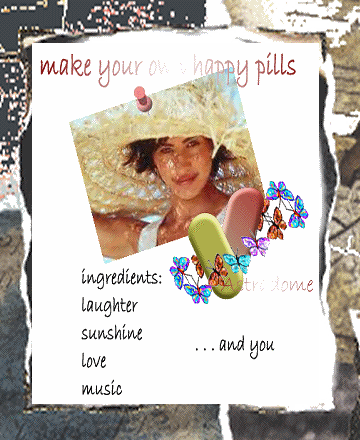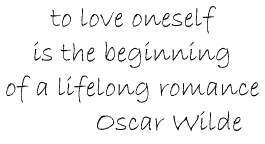|
|
||||
|
Many years ago, Norman Cousins was diagnosed as 'terminally ill'. He was given six months to live. His chance for recovery was one in five hundred. He realized that the worry, depression, and anger in his life contributed to, and perhaps helped cause, his disease. He wondered, "If illness can be caused by negativity - can wellness be created by being positive?" He decided to make an experiment of himself. Laughter was one of the most positive activities he knew. He rented every funny movie he could find and laughed himself to health. He lived another twenty happy, healthy, and productive years. In his book, Anatomy of An Illness, he credits visualization, the love of his family and friends, and laughter for his recovery. You grow up the day
How do you feel on a rainy day? Not quite the same as a sunny day, I bet. When the sun is out, everything looks brighter. Our spirits are higher and we are more optimistic about life. We have more energy on a sunny day . . . and rightly so as the sun is our source of energy. It's light permeates every cell in your body. Think of your body as a car with an engine. Without fuel (the sun) the engine (your body) cannot run. Without sunlight - you invite disease including depression, lack of energy, poor sleep, poor digestion, and a host of other maladies. The sun stimulates cell re-growth. It will also draw out toxins from you body. However, unless you are toxic free, it is important not to expose your skin to sunlight for long periods of time. To avoid your skin from becoming leathery, dry, and wrinkled it is essential that you are not nutrient deficient, that you are balancing your electromagnetic chaos, and that you are free of stress. Bathe your body in sunlight for fifteen minutes in the morning, within the first four hours after sunrise, or in the evening within the last four hours before sunset. Never use any sunscreen. The rule of thumb is that unless you can eat it - do not put it on your skin!
Poets express it. Young girls fantasize about it. Composers write lyrics. What is this thing called love? While most modern theories relegate it to the margins or ignore it altogether, the ancient Greeks put love at the very core of ethics. They understood and distinguished the different phases of love thusly: Eros: This word is the root of our word, "erotic." It means sexual desire or attraction. Plato, and much, much later, Sigmund Freud, claimed that eros is the motivation behind many more of our choices and actions than we usually recognize. Eros is the most closely related of these three types of love to what we usually mean by "romantic" or "erotic" love. Philia:
forms part of the root of our words, "philosophy" and
"philanthropy." Agape: What we would now call "brotherly love." It is the kind of love that one can and possibly does feel for everyone, or for the whole world - for "thy neighbor," in general. If "God is Love," as the Biblical claim goes, then He is agape love. Most important is unconditional love. How many people can honestly say that they have known true, unconditional love? Perhaps in order to embrace true love, we must start with self. Unless we are willing to love ourselves unconditionally - despite all our shortcomings and failures - we cannot hope to attract unconditional love.
Music is the language of the heart. We all have our preference as to what type of music we enjoy listening to. Whatever it is - allow music into your life.
Be kind to yourself. Love yourself. Know that you are the center of your personal universe. It is from your 'center' that you will emanate your creative energy out into the world and offer your unique gift. As you assume center stage each day, applaud your grand entrance with self-love, respect, and appreciation. Project confidence and worthiness. Celebrate the true meaning and purpose of your existence.
|
||||












